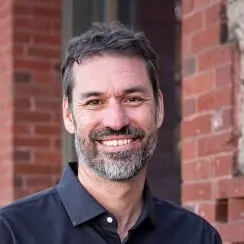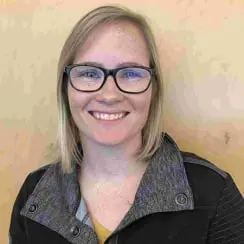 | 1 LU |
 | 1 LU |
Room: D139-140
Audience: Educators and Architects
Call to Action:
Abstract: The Human experience consists entirely of information conveyed to the brain by our sensing organs – touch, sight, hearing, smell, taste, spatial awareness, and balance. We perceive, understand, and process the world around us via our senses. Designing spaces that transmit healing experiences via each sense, aids in creating spaces and built environments that intentionally create feelings of safety, healing, and resilience in addition to aesthetic beauty. Healing spaces have common characteristics; however, trauma is caused by a vast diversity of sources. Trauma with abuse in myriad forms as the source may be layered over trauma caused by differing physical and mental abilities; and over trauma caused by race and gender identities. Acute, chronic, and generational trauma may be playing roles in varying degrees; and 57% of the student population experiences it first-hand, so it is imperative that it be addressed during design. Trauma-Informed Design is, therefore, designing for the senses. Recovery, healing, and resilience from trauma can be supported via the medium of the built environment by creating safety, community and belonging in the learning spaces we design.
Learning Objectives:

Joe appreciates working on K-12 projects that play an important role in creating pride and instilling a sense of community. Joe is highly practiced in leading meaningful stakeholder and student engagement; he has distilled a firm wide culture that encourages collaboration, innovative design initiatives, equity in design, and client focused personalization. To support the broader A/E/C industry, Joe is deeply involved with the Association for Learning Environments for the Oregon and SW Washington chapter.

Adam leads Greenbusch’s Acoustical & Audio/Video practice groups. He is experienced as an Acoustician for building and environmental acoustics and is equally proficient as an A/V Consultant. He has considerable experience developing and supervising the use of computer modeling to evaluate complex acoustical environments, provoking efficient and optimized mitigation approaches for challenging environmental noise issues. Adam’s work crosses multiple industry sectors including transit/transportation, higher education, K-12, healthcare/behavioral health, civic, justice, airport/port, industrial, and housing.

Educational Visioning
Exhibits an understanding of best and next practices related to educational leadership, programming, teaching, learning, planning and facility design. Establishes credibility with educators, community members and design professionals while conceiving and leading a community-based visioning process. Demonstrates the ability to articulate the impact of learning environments on teaching and learning and uses that ability to facilitate a dialogue that uncovers the unique needs and long-range goals of an educational institution and its stakeholders – translating that into an actionable written/graphic program of requirements for the design practitioner.